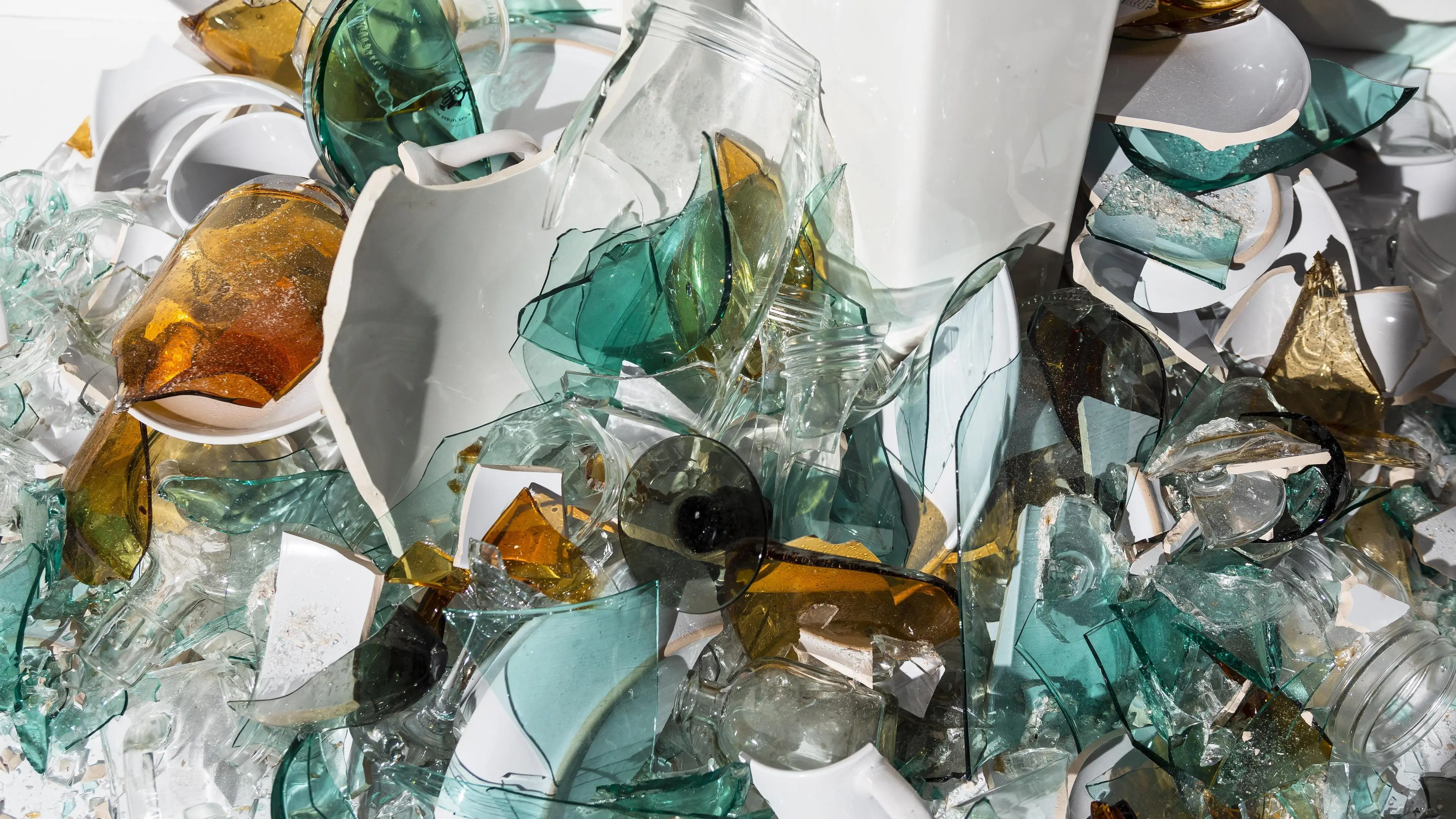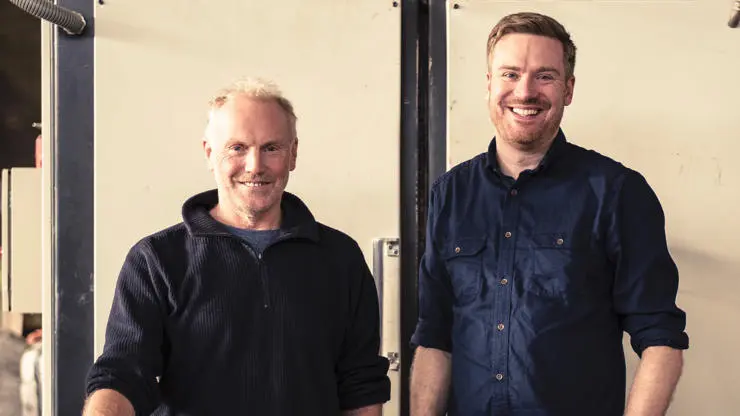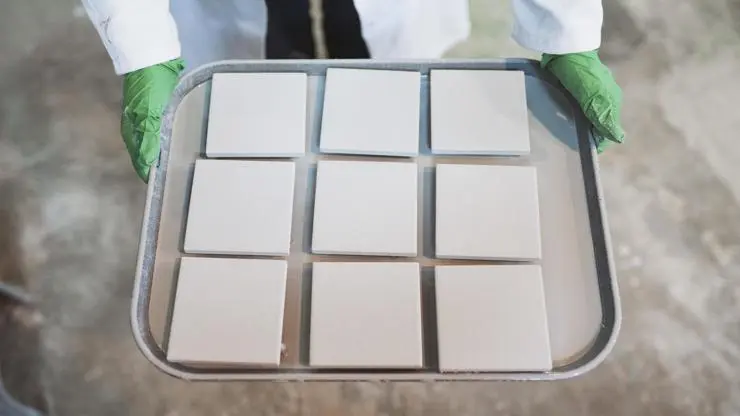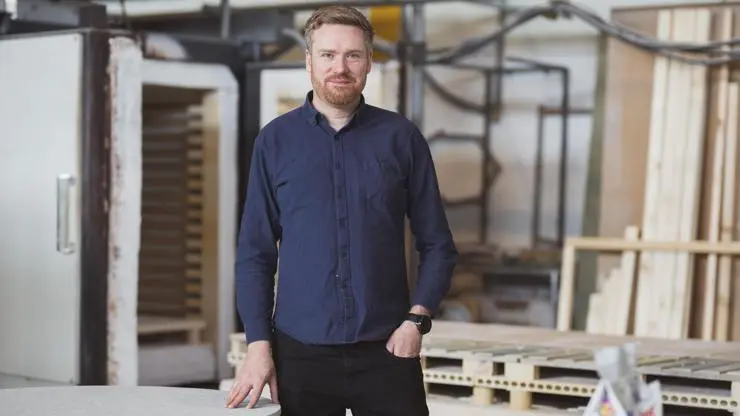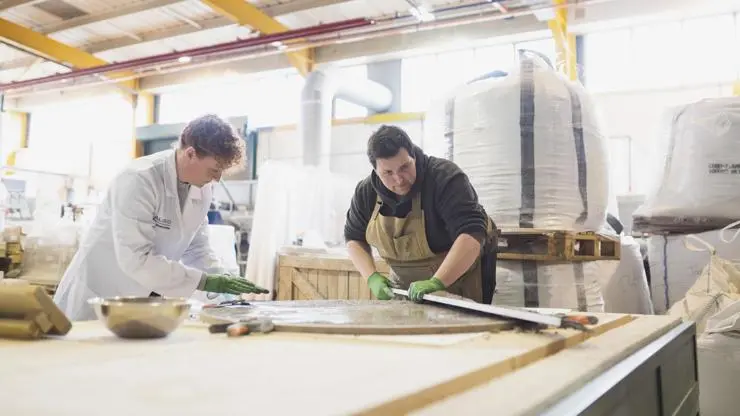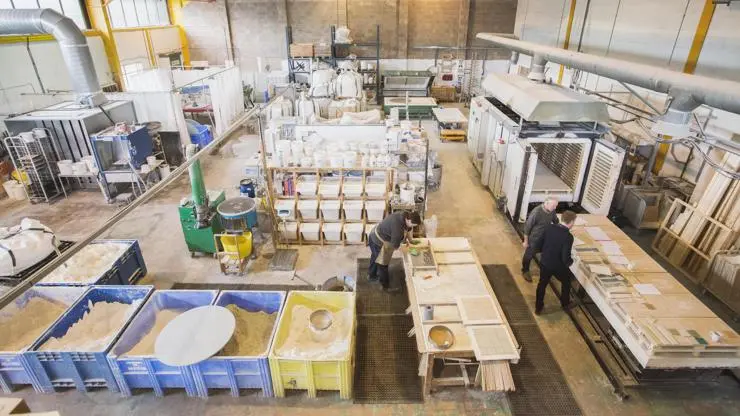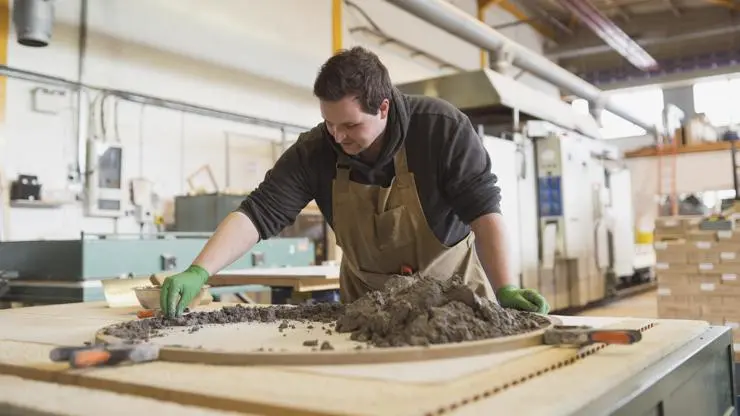At a time when world leaders, scientists and environmentalists are discussing what people can do to safeguard the future of the planet, diverting waste materials from landfill is always high on the priority list.
Recycling is encouraged in homes, businesses and on the high street, and the University of Central Lancashire’s first spin-out business, Alusid, is the result of a research project led by Professor David Binns and Dr Alasdair Bremner. The research, initially funded by the AHRC in the Ceramics area, explored ways in which waste and low-value materials destined for landfill could be repurposed into beautiful, versatile surface materials. This research highlighted how designers can be more sustainable and environmentally responsible.
A spin-out business is a company that transforms technological inventions developed from university research. Alusid, which was launched in 2015, designs and uses a patented process to manufacture sustainable, architectural, high-quality building materials by recycling industrial ‘waste’ ceramics and glass, which would otherwise go to landfill. This new surface material, produced from at least 98% recycled waste, has been transformed into tiles, work surfaces, table tops and furniture, which are all sold under the brand name SilicaStone.
The award-winning company has so far raised £2.9m to support the design, product development and scale up of production with sub contractors in Spain and Italy. SilicaStone is still made at their plant in Preston, Lancashire, and is distributed in the UK by PANAZ in Burnley.
"The building industry is increasingly looking for innovative sustainable products such as SilicaStone. While sustainability is incredibly important for all consumers, the look and quality of products is just as important."
— Dr Alasdair Bremner, Alusid
Dr Alasdair Bremner said: “The building industry is increasingly looking for innovative sustainable products such as SilicaStone. While sustainability is incredibly important for all consumers, the look and quality of products is just as important.
Alusid has attracted strong industry interest and the team have been working on a number of varied projects. It has launched its first range of mass-produced wall tiles from sustainable materials for Topps Tiles PLC. Called Principle, the tiles are made from 91% recycled industrial ‘waste’, one of the highest levels in the global tile industry.
They have also collaborated with Imerys, a global leader in mineral-based speciality solutions, and have developed a hard-wearing floor tile made from 98.5% recycled waste. Alusid was named as one of two winners in the Imerys Start-Up Innovation Factory competition, launched to enable research with potential partners to address challenges such as recovering and recycling waste from their mining and material processing operations across Europe.
Alusid have recently received grant funding from Innovate UK to develop glazes from recycled materials. Currently, Alusid are working with the Materials Processing Institute to conduct an independent Life Cycle Analysis (LCA) on their novel dry granulation process for manufacturing vitrified floor tiles, which they plan to launch early next year.
Professor StJohn Crean, Pro Vice-Chancellor (Research and Enterprise) at the University of Central Lancashire, said, “It’s fantastic to see that our first spin-out business has been so successful. We are committed to help support economic growth and social development in the region. With our strong reputation for applied business research, entrepreneurship, innovation and bringing academic excellence to life, we want to support entrepreneurs and help them to improve their productivity and performance.”
The investments from the University of £275K, as part of a larger funding round with other investors, has been very positive. This Initial support from the University is continuing as the company matures and scales up its operations. We are in a unique position to capitalise on the economies of scale coupled with lower energy and material costs while making desirable products.”
